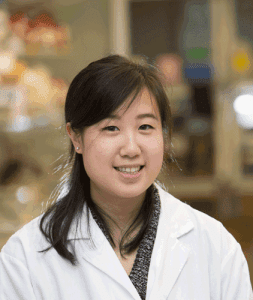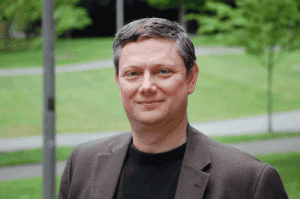UW Bioengineering Professor Paul Yager, Ph.D. candidate Leslie Chan and Molecular Engineering and Sciences Institute building coordinator Christopher Adams have been selected for 2015 College of Engineering (COE) Awards. COE Awards acknowledge the extraordinary efforts of the college’s teaching and research assistants, staff and faculty members. COE Awards candidates are nominated by students, staff and faculty throughout the college, and are reviewed by a selection committee who recommend the top candidates to the COE Dean for the final decision.
Dr. Yager, Leslie, Christopher and other COE Award recipients will be recognized at an award ceremony on May 28 from 3:30-5:00 p.m.
Learn more about the College of Engineering Awards.
 Paul Yager receives 2015 Faculty Award for Research
Paul Yager receives 2015 Faculty Award for Research
Dr. Yager was selected on the basis of his extraordinary contributions and dedication to research, innovation, scholarship and service. Dr. Yager is an internationally recognized innovator in microfluidics and point-of-care diagnostic technologies. His efforts currently focus on developing a new class of low-cost diagnostic technologies that emulate the abilities of a high-tech lab in limited resource settings.
Dr. Yager develops two-dimensional paper networks (2DPNs) for diagnosing disease, with the long-term goal of increasing access to healthcare in developed and developing countries. His projects involve collaborations with non-governmental organizations, federal agencies and industry. His multi-disciplinary work draws from diverse disciplines including physical biochemistry, chemical engineering, materials science, electrical engineering, biomedical imaging and computational fluid dynamics.
In 2005, Dr. Yager received a $15.4 million Grand Challenges grant from the Bill and Melinda Gates Foundation to create a portable, rugged and cheap tool for testing blood to diagnose disease that could be used in developing countries. His current work to develop diagnostic devices to detect MRSA and influenza is supported by NIH and DARPA.
Dr. Yager has been a member of the Department of Bioengineering faculty since 1987. From 2008 through 2013, he served as the Hunter and Dorothy Simpson Endowed Chair of Bioengineering. He is an AIMBE Fellow and a member of the Washington State Academy of Sciences. In 2014, he received a Seattle Business Magazine’s 2014 Leaders in Health Care Award with distinct recognition for “Achievement in Medical Devices”.
 Leslie Chan receives 2015 Student Award for Research
Leslie Chan receives 2015 Student Award for Research
Leslie has been a Ph.D. student in Professor Suzie Pun’s lab since 2010. The goal of her research is to develop hemostatic (blood-clotting) polymers to resolve bleeding after traumatic injury. She is engineering polymers that can be administered systemically and that will localize at sites of vascular injury to stabilize forming blood clots. Her work has important implications for emergency medicine because it has the potential to treat internal bleeding that can’t be treated easily and causes 30-40% of prehospital deaths. The polymers Leslie is developing could be used by first-responders to sustain a patient’s condition before he/she is brought to a hospital, stabilized and receives surgery to address their injuries. She recently published proof-of-concept of her work in the journal Science Translational Medicine.
During her time at UW Leslie has been a TA for BIOEN 215 Introduction to Bioengineering Problem Solving and delivered lectures in BIOEN 491 Controlled Release Systems. She has contributed to educational outreach activities such as Time to Invent and tutored for the Jackson Park Youth Tutoring Program.
Christopher Adams receives 2015 Classified Staff Award
Christopher Adams has worked for BioE’s Molecular Engineering and Sciences Institute since before the opening of the MolES building in 2012. He is responsible for all aspects of managing the MolES facility including health and safety, modifications and renovation projects and general building operations.
He is recognized for his competence, resourcefulness and commitment to customer service. His efforts have helped establish a safe, smoothly functioning and collaborative work environment at MolES.




 Paul Yager receives 2015 Faculty Award for Research
Paul Yager receives 2015 Faculty Award for Research Leslie Chan receives 2015 Student Award for Research
Leslie Chan receives 2015 Student Award for Research